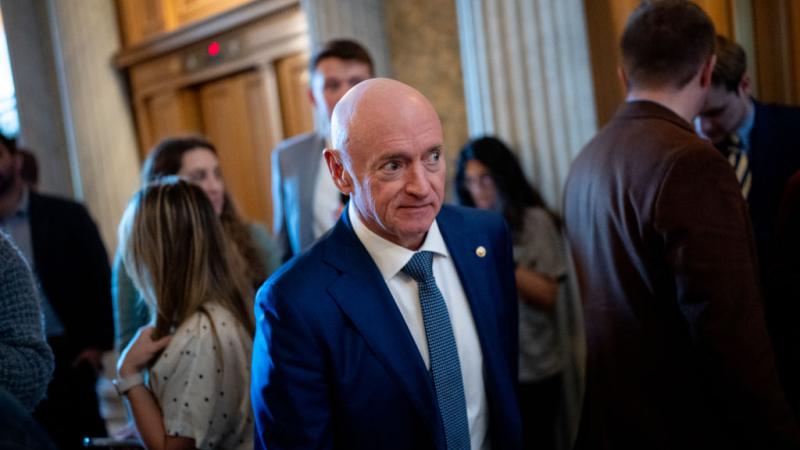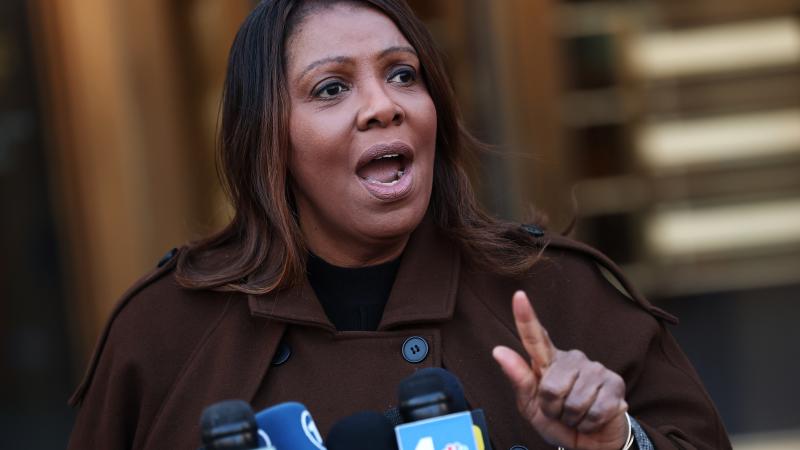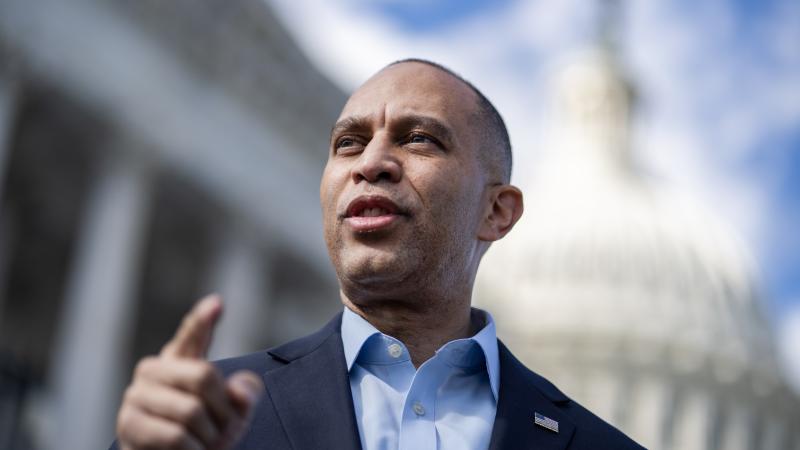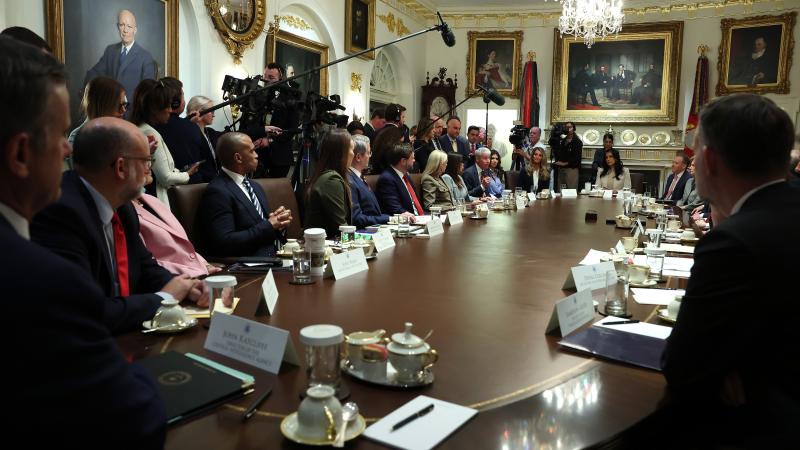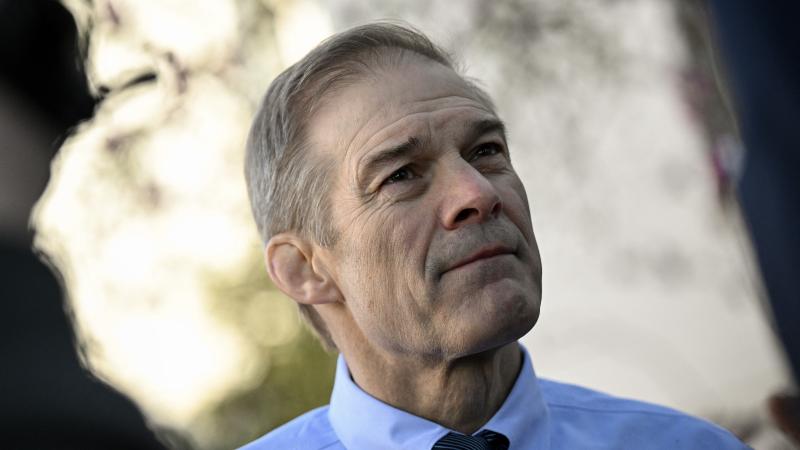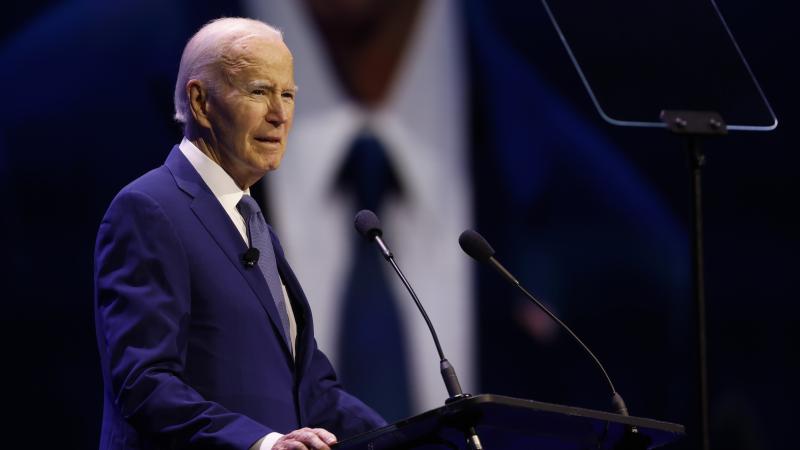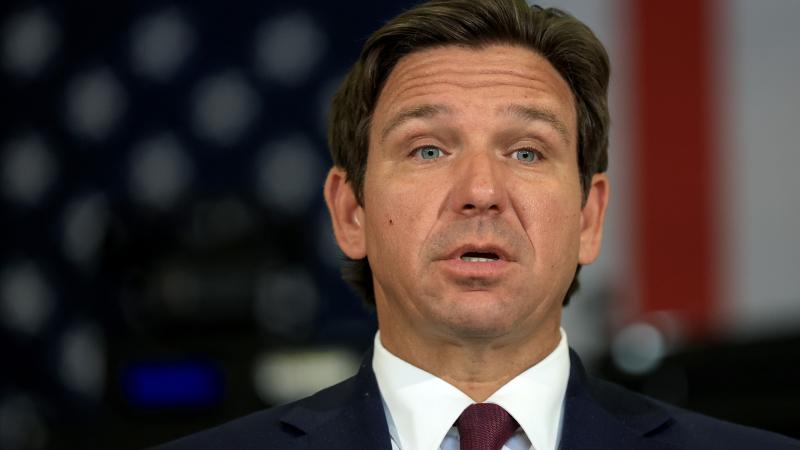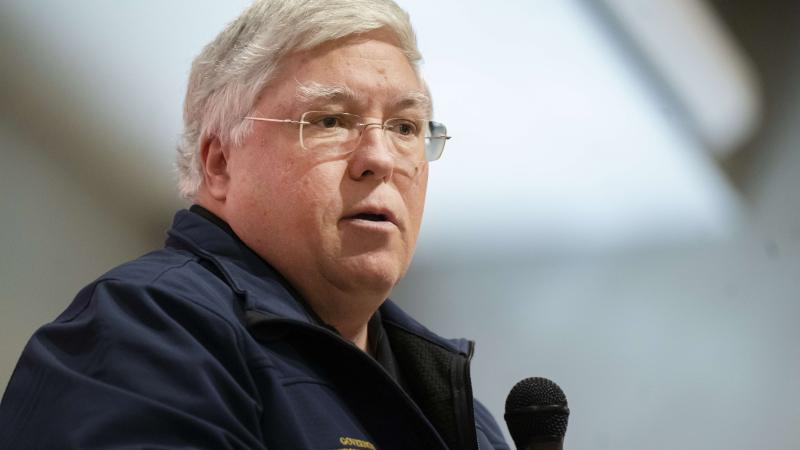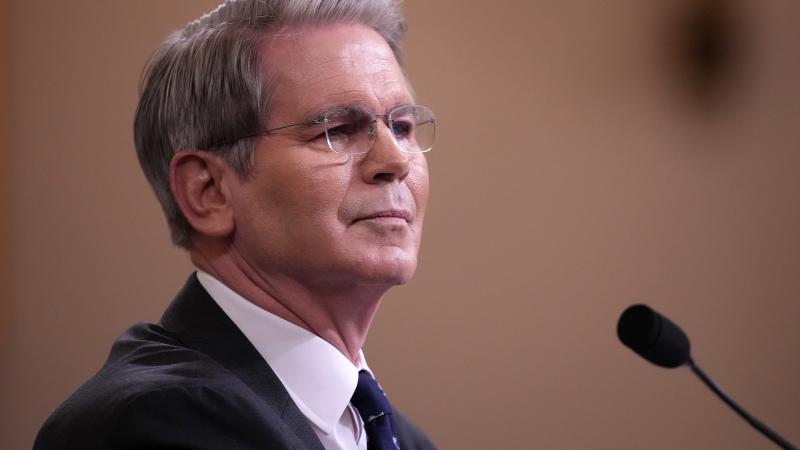WA Gov Ferguson warns of rural impact as US Senate parliamentarian blocks Medicaid cuts
With the president’s self-imposed July 4 deadline just a week away, Gov. Bob Ferguson berated President Donald Trump’s ‘Big Beautiful Bill’ on Thursday over controversial cuts to Medicaid.
(The Center Square) -
With the president’s self-imposed July 4 deadline just a week away, Gov. Bob Ferguson berated President Donald Trump’s ‘Big Beautiful Bill’ on Thursday over controversial cuts to Medicaid.
Ferguson’s Tri-Cities press conference coincided with a U.S. Senate parliamentarian ruling out a few of those cuts, particularly around eligibility for immigrants and gender-affirming health care.
Parliamentarian Elizabeth MacDonough ruled that those provisions and others around Trump’s agenda violated the Byrd rule. The procedure requires those cuts to be directly tied to the budget, not ideological reforms, to pass the reconciliation bill with a simple majority.
“These Medicaid cuts are cruel and will harm many thousands of Washingtonians, all to provide tax breaks for the wealthiest,” Ferguson said. “Republicans in Congress are proposing about a trillion dollars in cuts over the next 10 years, including the largest cut to Medicaid in history.”
While Trump’s bill includes extensive cuts to federal spending, nonpartisan estimates from the Congressional Budget Office suggest it could increase the national deficit by around $3 trillion.
Republican plans to cut $700 billion in spending by lowering the Medicaid provider tax cap from 6% to 3.5%, prohibiting coverage for gender-transition surgeries and limiting eligibility in states providing benefits to illegal immigrants by relying on pre-COVID-19 criteria and imposing work requirements would have helped offset some of the increase in debt, but now that’s up in the air.
If the majority party can tweak the changes to comply with the nonpartisan parliamentarian’s ruling, Republicans could still pass the reconciliation bill by Trump’s July 4 deadline; however, the House of Representatives must concur on the Senate amendments first, which would cut it close.
Ferguson said Thursday that Apple Health, the state’s Medicaid program, covers nearly 2 million Washingtonians. He warned that if the reconciliation bill passes, up to 200,000 people may lose coverage statewide, with the nonpartisan CBO estimating about 7.8 million nationwide by 2034.
“We spend approximately $21 billion a year in Washington state on Medicaid. $13 billion of those dollars come from the federal government,” Ferguson said. “Estimates from the House budget would mean a $2 billion cut over four years. The Senate version is even worse.”
He said the Senate’s changes would raise the state’s Medicaid cuts to $3 billion. The CBO says that of the 7.8 million people who could lose health care coverage, 4.8 million are “able-bodied” adults between 19 and 64 years old, with no dependents, who work less than 20 hours a week.
To continue receiving coverage, they would need to comply with the work requirements, which call for a minimum of 80 hours per month, or approximately 20 hours per week. That standard would not apply to pregnant women, minors, senior citizens, tribal members and many others.
CBO also claimed that 1.4 million people who would lose coverage don’t meet the citizenship or immigrant status requirements for Medicaid, which laws in states like Washington don’t require.
Another 1.6 million people are enrolled in multiple states, meaning they would lose coverage in the state where they don’t reside, and 1.3 million others are enrolled in Medicare and Medicaid.
Nonetheless, even Republicans in Washington state have called on Congress to reconsider the cuts that could upend the local health care system, even for those who do not rely on Medicaid.
“Closures of healthcare organizations such as hospitals, clinics and nursing homes will disrupt the entire city and county economies,” according to a letter signed by 23 Republicans in the Washington State Legislature. “Without healthcare providers nearby, businesses have a tougher time recruiting workers and families have a more difficult time staying healthy.”
The Legislature’s minority party warned, like Ferguson on Thursday, that if federal funding is cut or reduced, local taxpayers will have to fill the gap or face additional health care cuts statewide.
Ferguson cited a report from the National Rural Health Association that found rural hospitals will lose 21 cents out of every dollar they receive from Medicaid if the bill passes. The impact could be devastating in eastern Washington, where 25% of reimbursements come from Medicaid.
He said that one-third of rural hospitals nationwide are at risk of closure, with 18 in Washington and another seven in-state at “immediate risk of closing,” as well as 31 at risk of losing services.
“What you will see if this goes forward is hospitals will close, so you may not be on Medicaid yourself, but guess what? You go to a hospital that may close because of these cuts,” Ferguson said. “Many hospitals across our country and in our state are hanging on by a thread.”
Thursday’s ruling may have saved thousands of Washingtonians from losing Medicaid coverage for now, but there’s still a chance that some of those provisions will pass in some form. If Senate and House Republicans hope to cross the finish line by July 4, Congress will need to act fast.
